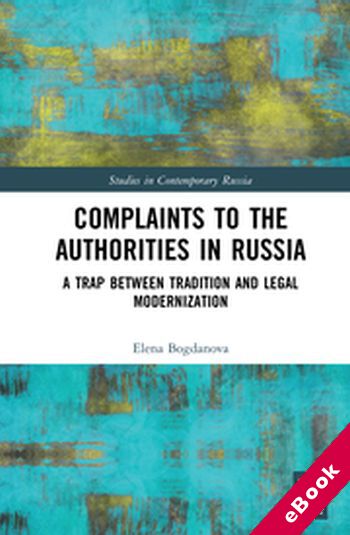
The device(s) you use to access the eBook content must be authorized with an Adobe ID before you download the product otherwise it will fail to register correctly.
For further information see https://www.wildy.com/ebook-formats
Once the order is confirmed an automated e-mail will be sent to you to allow you to download the eBook.
All eBooks are supplied firm sale and cannot be returned. If you believe there is a fault with your eBook then contact us on ebooks@wildy.com and we will help in resolving the issue. This does not affect your statutory rights.
This book considers the process of legal modernization in Russia from the perspective of the development of the mechanism of complaints addressed to the authorities from the pre-revolutionary period to today. It analyses wide-ranging data and sources, collected over 17 years, such as legislation, in-depth interviews, archival materials, original texts, and examples of different methods of complaints in the Soviet and contemporary Russia.
Being marginal to the legal system and almost invisible for researchers of legal development, the complaint mechanism has functioned as an extremely important way of restoring justice, available to the majority of people in Russia through centuries. It has survived several historical gaps and, in a sense, acts as a thread that stitches different eras, coexisting with the establishment and modernization of legal institutions, compensating, accompanying, and sometimes substituting for them. The research covers a period of over 100 years, and shows, how and why at major historical crossroads, Russia chooses between full-fledged legal modernization and saving of the authoritarian social contract between the state and society.
This book will be especially useful to scholars researching Soviet society and Post-Soviet transformations, socio-legal studies, and liberal legal reforms, but will also appeal to those working in the broader fields of Russian Politics, the history of Soviet society and justice issues more generally.